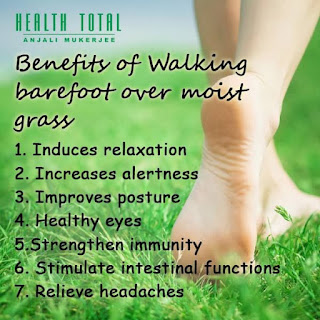Alzheimer’s disease (AD) is the most common type of
dementia, in which the mental ability of persons gradually declines and reaches
a stage where it becomes difficult for them to lead a normal life. With the
disease progressing gradually, patients find themselves more and more dependent
on their immediate family members for survival.
A healthy diet, exercise, social and mentally stimulating
activities, as well as everyday habits, and ample sleep can markedly reduce
your risk of Alzheimer’s.
The most important ways to prevent Alzheimer’s: Control
diabetes and high blood pressure, reduce weight if obese, stay active, treat
depression & don’t smoke.
If you get evaluated for Alzheimer’s, your doctor can make
a diagnosis based on symptoms, a clinical history, and medical tests (to rule
out causes like thyroid issues or nutritional deficiencies). Brain imaging
tests like a cat scan or MRI can look for beta amylase plaques gun king up
brain regions.
Worldwide, there are at least 44 million people living with
Alzheimer’s and other dementias. It starts as minor forgetfulness and
progresses into a disorder in which persons can’t even identify their near and
dear ones.
Yoga and Mudras are very viable strategy for coping with
and fighting Alzheimer’s.
Alzheimer’s and the Brain
Brain cells in the hippocampus, a part of the
brain associated with learning, are often the first to be damaged by
Alzheimer’s. Therefore, memory loss, especially difficulty remembering recently
learned information, is often the first symptom of the disease.
How to cope with Alzheimer’s
Gyan mudra: - Gyan Mudra increases
the air element in the body which has positive effect on our emotions. Gyan
Mudra or the Vayu Vardhak mudra is formed by joining the tip of index finger
and the thumb. This mudra stimulates the pituitary gland, which controls your
metabolism, as well as your sleep cycles. This mudra increases the air element
in the body which sharpens our mind and has positive effect on our emotions. If
practiced regularly this mudra can help you cure disorders like Dullness of
mind, lack of enthusiasm-initiative-creativity, recklessness, loss of memory,
Drowsiness, lethargy, mental retardation, Disorders of the nervous system like
cerebral palsy, neuritis, neuropathies, Alzheimer's disease, Tabes dorsalis,
multiple sclerosis, motor neurone disease, Ataxias, Dementias, Syringomyelia.
It also facilitates
movements of electrical impulses along nerves, empowers the pituitary gland
and, thereby, the entire system of endocrine glands, empowers muscles, both
voluntary and involuntary, empowers the vocal cords and the voice, empowers the
heart. Perform for 30-45 minutes every day, or for 10-15 minutes 3 times a day.
Mood enhancement is important because of the emotional difficulties involved in
coming to terms with cognitive impairment.
Mantra vibrations
The
nasal and sonorous sound of proper recitation of mantras creates vibrations
inside the brain that increases the probability of producing 40 hertz brain
waves. Since both auditory and visual cortex, where sound and light signals
respectively are processed, are in a certain section of the brain, we still do
not know the exact mechanics of how such sound waves create 40 hertz for the
whole brain.
Some
scientists speculate that the hippocampus, which is the memory region of the
brain, is positively affected by this chanting. Hippocampus is the first region
of the brain affected by plaques. If plaque reduction in this region can be
affected, then this cascading effect can be felt in other areas also.
The Aum sound: - verbal recitation boosts cognitive function
Walking Barefoot On Grass
Green
is a soothing color that helps calm your mind and reduces tension. When you
walk barefoot on grass, the level of endorphins (feel-good hormones) in your
body increases. Research also shows that walking barefoot on grass helps to
decrease stress level by 62 percent. Apart
from these, there are other benefits of earthing such as it improves autonomic
nervous system balance, promotes cardiovascular health, improves blood
viscosity, boosts brain power, improves heart rate variability etc.
Do yogic asanas and pranayama daily only in fresh air (not
in AC halls) to maximise the effects of oxygenated blood in your body. It will
increase the lustre of your face, hair, besides preserving your youthfulness
and increasing vitality.
Yoga alters spontaneous respiratory
regulation and reduces hypoxia.
Prolonged or chronic hypoxia has
been shown to alter the excitability and functional expression of ion channels,
which possibly contributes to neurodegeneration.





No comments:
Post a Comment